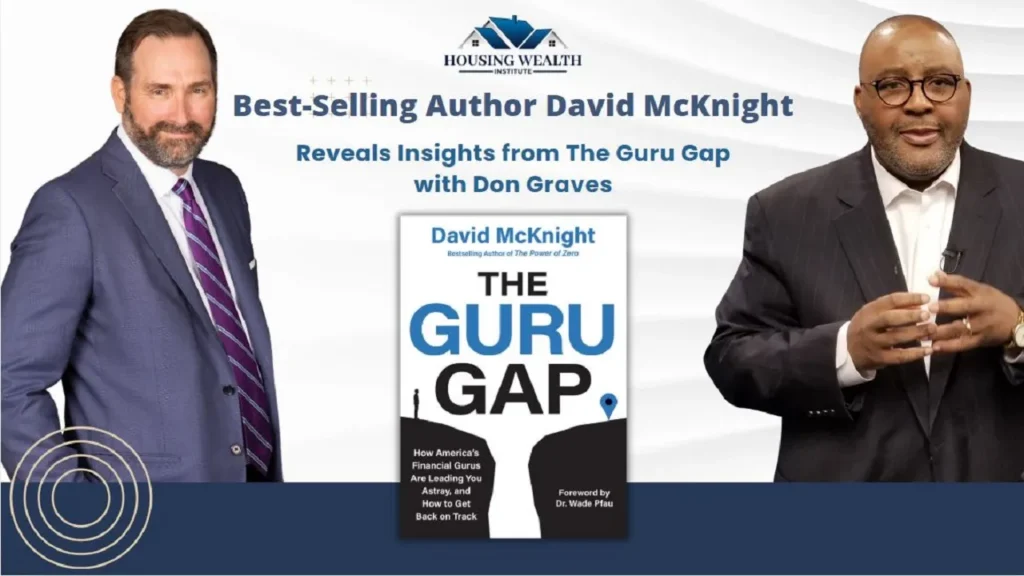Understanding Retirement Income Planning: Why the Journey Down the Mountain is Harder
Retirement income planning has undergone a profound transformation. For decades, the focus was on accumulating assets—climbing the mountain. However, starting around 2010, thought leaders recognized that the distribution phase—coming down the mountain—is far more complex and fraught with risks.
Mistakes in this phase are harder to recover from, making it essential to address the intricate challenges of this season with careful, holistic strategies.
This list of 50 challenges—25 for clients and 25 for advisors—highlights the many complexities that must be addressed in retirement income planning.
Having earned my Retirement Income Certified Professional (RICP) designation in 2015 and leveraging over 25 years of experience as a Reverse Mortgage Professional, I’ve dedicated my career to helping advisors and their clients navigate this difficult terrain. Reverse mortgages, in particular, offer a valuable tool to ensure retirees experience stability and security as they transition through this critical phase.
A Video Message From Don
Top Challenges Clients Face in Retirement Income Planning
Clients often approach retirement with uncertainty about how to preserve and grow their wealth while ensuring financial security. Here are 25 common concerns:
- Longevity Risk
Clients worry their savings won’t last as they live longer than ever. Strategies like annuities or diversified investments can help. (Source: Society of Actuaries, 2023 Longevity Report) - Market Volatility
Retirees fear market downturns, which can erode savings. Advisors must manage sequence of returns risk effectively. (Source: Wade Pfau, 2022)  Rising Healthcare Costs
Rising Healthcare Costs
Medical expenses, including long-term care, represent a major financial risk. (Source: Fidelity Retiree Health Care Cost Estimate, 2023)- Inflation Risk
Inflation reduces purchasing power, making it necessary to include inflation-protected investments. (Source: U.S. Bureau of Labor Statistics, 2024) - Tax Efficiency
Navigating the tax implications of withdrawals from various accounts can be overwhelming. (Source: Ed Slott, 2021) - Social Security Optimization
Choosing the best time to claim Social Security significantly impacts lifetime benefits. (Source: National Academy of Social Insurance, 2023) - Behavioral Biases
Emotional decisions, such as selling during downturns, can derail plans. Educating clients is vital. (Source: Daniel Kahneman, 2011) - Withdrawal Rate Management
Setting a sustainable withdrawal rate ensures assets last through retirement. (Source: William Bengen, 1994; Morningstar, 2022) - Regulatory Changes
Shifts in laws like the SECURE Act affect required minimum distributions (RMDs) and other aspects of planning. (Source: SECURE Act 2.0, 2023) - Insufficient Savings
Many clients have under-saved, requiring creative solutions like part-time work or downsizing. (Source: EBRI, 2023) - Long-Term Care Costs
Clients often underestimate these expenses, leading to significant financial strain. (Source: Genworth Cost of Care Survey, 2023) - Sequence of Returns Risk
Early losses in retirement portfolios can deplete savings prematurely. (Source: Michael Kitces, 2023) - Asset Allocation
Striking the right balance between growth and income remains a challenge. (Source: Vanguard, 2023) - Housing Wealth
Many overlook home equity as a valuable asset for retirement planning. (Source: Dr. Wade Pfau, 2022) - Fear of Spending
Retirees often hesitate to use their savings, fearing future shortages. (Source: Vanguard, 2023) - Roth Conversion Strategies
Understanding the benefits of converting traditional accounts to Roth IRAs can be complex. (Source: David McKnight, 2020) - Unexpected Expenses
Emergencies like health crises or family support can strain resources. (Source: Transamerica, 2023) - Medicare and IRMAA Penalties
Failing to navigate Medicare enrollment correctly can result in costly penalties. (Source: CMS, 2023) - Cognitive Decline
Planning for potential mental impairments adds complexity. (Source: Alzheimer’s Association, 2023) - Interest Rate Sensitivity
Rising rates affect bond portfolios and borrowing costs. (Source: Federal Reserve, 2024) - Multigenerational Planning
Clients struggle to include heirs in their financial plans. (Source: Cerulli Associates, 2023) - Income Planning for Singles
Singles face unique challenges, such as reduced Social Security benefits. (Source: WISER, 2023) - Complexity of Decumulation Tools
Many retirees find tools for withdrawal strategies confusing. (Source: FPA, 2024) - Underinsurance
Clients often lack adequate life or long-term care insurance. (Source: LIMRA, 2023) - Low Financial Literacy
Poor understanding of financial concepts limits effective planning. (Source: FINRA, 2023)

Top Challenges Financial Advisors Face in Retirement Income Planning
Financial advisors navigate a dynamic and competitive environment. Here are 25 challenges specific to their profession:
- Finding New Clients
Identifying prospects with significant investable assets is increasingly difficult. - Retaining Clients Amid Competition
Robo-advisors and low-cost options put pressure on traditional models. (Source: McKinsey, 2024) - Fee Compression
Justifying fees while competing against lower-cost providers is a constant struggle. (Source: Cerulli Associates, 2023) - Specializing in a Niche
Advisors often struggle to differentiate themselves in crowded markets.  Time Management
Time Management
Balancing high-touch client service with growing the business is a challenge.- Educating Clients
Advisors must simplify complex financial strategies for clients with varying literacy levels. (Source: CFA Institute, 2023) - Staying Compliant
Adapting to regulatory changes requires significant time and resources. (Source: FINRA, 2024) - Aligning Client Expectations
Managing unrealistic expectations about returns or retirement timelines. - Scaling the Business
Growing an advisory firm while maintaining personalized service. - Marketing in a Digital World
Adapting to social media and digital platforms for lead generation. (Source: HubSpot, 2024) - FinTech Integration
Keeping up with advancements in financial technology is crucial. (Source: InvestmentNews, 2023) - Building Strategic Partnerships
Collaborating with CPAs, attorneys, and other professionals to broaden service offerings. - Balancing Revenue Sources
Avoiding over-reliance on commission-based products while maintaining profitability. - Succession Planning
Advisors face their own challenges transitioning practices to the next generation. (Source: FP Transitions, 2023) - Hiring and Retaining Talent
Recruiting skilled advisors in a competitive job market. - Robo-Advisor Competition
Demonstrating the value of human advice versus automated platforms. (Source: McKinsey, 2024) - Demographic Shifts
Adapting services to meet the needs of diverse and younger clients. (Source: Pew Research, 2023) - Work-Life Balance
Managing stress and avoiding burnout in a demanding field. - Industry Stigma
Overcoming negative perceptions about financial products like annuities or reverse mortgages. - Economic Uncertainty
Adapting to market volatility, interest rate changes, and inflation. - Training Junior Advisors
Ensuring team members are equipped with the latest knowledge and skills. - Client Succession
Retaining relationships with heirs and transitioning wealth management. - Low Financial Literacy Among Clients
Addressing gaps in clients’ understanding of basic financial principles. (Source: FINRA, 2023) - Competing Value Propositions
Clearly articulating the value of personalized advice over generic solutions. - Staying Relevant
Continuously updating skills and knowledge to meet industry and client demands.
Conclusion

Retirement income planning is a multifaceted challenge that requires financial professionals to address a wide array of client concerns while also navigating their own professional hurdles. The 50 challenges outlined in this guide highlight the importance of a holistic approach, where tools like reverse mortgages integrate seamlessly into strategies for longevity, tax efficiency, and income stability.
As the first reverse mortgage professional to earn the Retirement Income Certified Professional (RICP) designation from the American College, I bring a unique insider perspective to this field. I was honored to create housing wealth content for the RICP program and continue to contribute to its curriculum, reinforcing the critical role of home equity in comprehensive retirement plans. This distinction is not just a credential—it reflects a commitment to helping advisors and their clients succeed with sustainable and effective strategies.
Why does this matter? Because retirement income planning is about more than just numbers; it’s about creating holistic, comprehensive, and sustainable solutions that address every aspect of a retiree’s financial picture. Including home equity is essential to achieving these goals and ensuring long-term financial success.
With careful planning, collaboration, and the integration of proven tools like reverse mortgages, financial advisors can help retirees achieve the peace of mind and financial security they deserve, turning the complexities of retirement income planning into opportunities for success.
Related Posts:
- Fuel Your Passion: 20 Inspirational Quotes for Financial Professionals
- Fifteen Things Your Client’s Tax Return Can Tell You
- Unlocking Retirement Potential: Five Ways the Modern Reverse Mortgage Benefits Your Client
What to Do When You Have a Client or Case?
- Go to www.HousingWealthPro.com and request a Housing Wealth Illustration. Give Details in the “Notes” Section including the clients phone # if they would like a Housing Wealth Assessment. You can also
- Schedule a Time to Speak with Me: Click Here
The content of this blog is for financial advisors and professionals only and is not intended for consumer use. Names, cases, and scenarios are fictionalized for illustrative purposes. The opinions expressed here are those of the author alone and do not reflect the views of any affiliated entities or individuals. Don Graves, NMLS #142667.


 Rising Healthcare Costs
Rising Healthcare Costs Time Management
Time Management



